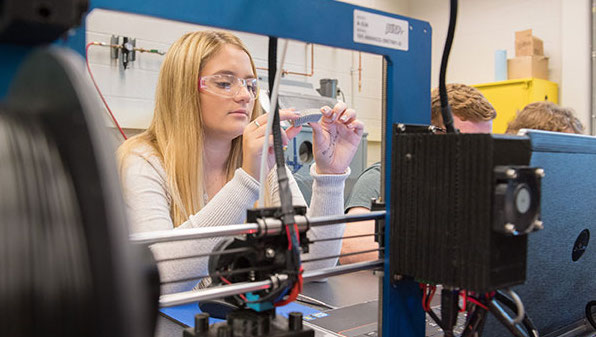It’s no wonder business leaders like focusing on career and technical education (CTE) – when done well, students gain tangible workplace skills and experience highly valued by those doing the hiring. And if your company requires more specialized expertise, a rigorous CTE program can put students on an accelerated path toward your field.
Improving CTE policies and expanding access to quality programs can be powerful levers for providing more chances for students to succeed. And as conversations about what it means to be career- and college-ready have evolved over the past few years, policymakers have renewed their focus on CTE as a way to provide a broader range of pathways to post-secondary opportunities.
So what does the research say on CTE? What sort of results should we expect for students? How should states approach strengthening their own career pathways? And what should business leaders be aware of as they advocate for more CTE opportunities?
Professor Brian Jacob recently explored these questions about CTE, and the answers, while promising, show there’s not a lot to go on (more on that later).
On the positive note, historically CTE participation has been associated with employment outcomes like higher wages (though there is no similar correlation with academic outcomes). Jacob also covers a recent, academically rigorous study of the Regional Vocational and Technical High Schools in Massachusetts that associates attending those schools with substantially higher graduation rates, particularly among low-income students.
Yet another recent study, however, also provides evidence to support a long-held caution about CTE, namely that more traditional vocational education programs present a trade-off between more immediate workforce success in the years after high school and a more limited ability to switch careers if necessary in the longer term due to a lack of more fundamental academic skills.
Jacob notes that this finding is particularly concerning given labor market predictions related to automation and the rise of AI, a problem we cover extensively in our recent report, Age of Agility. That’s why it is critical that policymakers and school administrators alike not treat CTE as a shortcut to high school graduation. CTE must include rigorous academics that complement the career skills, preparing students as lifelong learners able to navigate a perpetually changing landscape of career opportunities.
Perhaps most importantly, we join Jacobs’ call for more rigorous research on CTE. Advocating for a wide array of education-to-career pathways is great for students and business alike, but we need more evidence on what works and what doesn’t to make sure we’re getting it right.
Check out the full piece over at EducationNext.




